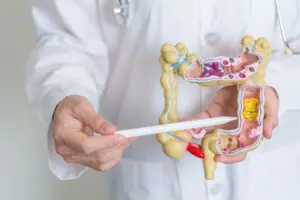
Chronic Acidity in Seniors: As we age, the body changes, and so does digestion. One of the most common issues is chronic acidity. That burning in your chest, a sour taste in the mouth, or a heavy, bloated feeling after meals is more common than you might think. If you or a loved one deals with these symptoms often, you’re not alone. Chronic acidity can make everyday life uncomfortable, but the good news is that it’s manageable with the right steps.
What is chronic acidity?
Chronic acidity means acid reflux or heartburn keeps coming back, sometimes even every day. It happens when stomach acid flows up into the food pipe, causing a burning sensation in the chest. You may also feel like food is stuck behind the breastbone, along with bloating and frequent burping.
Also Read | Is fasting making your acidity worse? Here’s what you should know
Why do seniors experience more acidity?
As you get older, several changes can slow or disrupt digestion. The valve (sphincter) that normally keeps stomach acid from flowing back into the oesophagus can weaken with age, letting acid slip upward and trigger heartburn. Stomach emptying also tends to slow, so food and acid linger longer, raising the risk of reflux. And in some older adults, stomach acid production actually drops, paradoxically slowing digestion and allowing food to ferment, which can lead to gas, bloating, and acid-like symptoms.
When to take acidity seriously?
Chronic acidity isn’t just uncomfortable; it can lead to complications if left untreated. Over time, repeated acid exposure can injure the oesophageal lining and cause ulcers. See a doctor if reflux happens more than twice a week, you’re losing weight without trying, swallowing feels difficult, or you have chest pain. Early evaluation can prevent damage and get you on the right treatment.

How to manage chronic acidity in seniors?
Smaller, more frequent meals can ease symptoms. Instead of three heavy plates, try five to six lighter portions. This way, your stomach has less to process at once, which can reduce reflux.
Watch your triggers. Common culprits include spicy or fried foods, tomatoes and tomato sauces, onions, and garlic. Reduce your intake of these and note whether your symptoms improve.
Avoid tight waistbands. Belts and snug clothing add pressure to the stomach and can worsen reflux. Opt for looser, comfortable fits, especially around mealtimes. Drinking water between meals helps clear acid and supports digestion. Avoid large volumes with meals, as this can increase bloating.
Also Read | Do you have acidity often? These 8 habits might be why
Chronic acidity is common in older adults, but it doesn’t have to ruin your day. With a few mindful shifts in diet, habits, and clothing, most people can manage symptoms and feel more comfortable.








